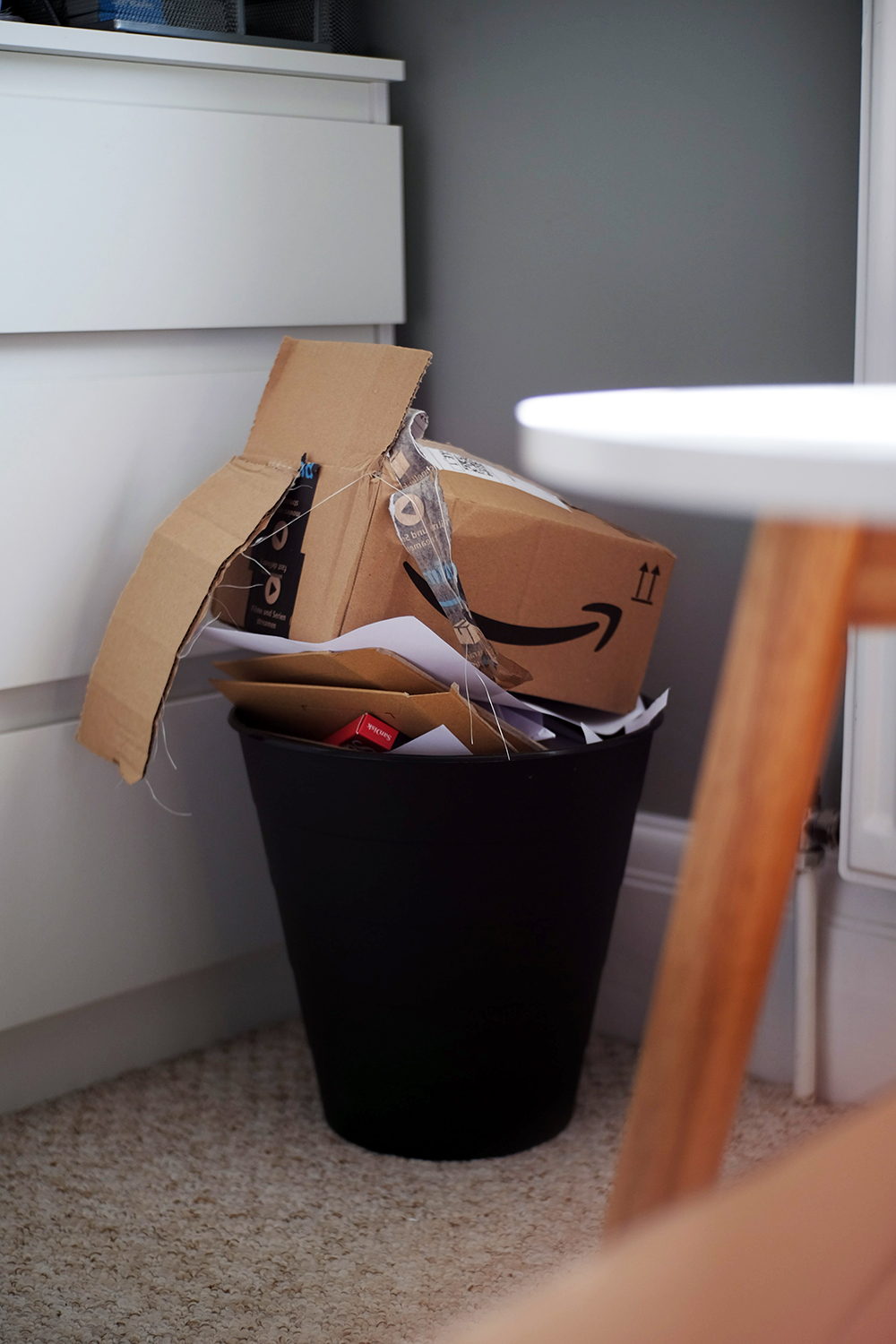One of my favorite financial writers, Jacob Lund Fisker, had an interesting process to determine what sort of things to own. He was on the early crest of what we might now call minimalism (though he disputes that characterization) and even today focuses on owning things he uses hourly or at least daily. He has particular contempt for things owned more than six months without being used (get rid of it), things idle for more than a year (get rid of it!), and my favorite category, “I didn’t even know I owned this” (he recommends “get rid of it!!!” with three exclamation points).
I noticed recently that amazon.com order history is very detailed, can be easily extracted, and never is purged. There is nothing special about Amazon orders, or online vs. in-person buying in general, except it is rare to have such comprehensive buying info all in one place. I have Amazon purchases I can review going back to the year 2000 — a unique time capsule. Just like the addresses in my Amazon address book, it is a diary of my life and where I have been over the years. Here are some thoughts on what I see in my data from a financial perspective.
One large category is consumables like food and furnace filters, which mostly can be ignored. However, I have learned that it’s worth checking the price at local grocery stores since sometimes the cost of shipping baked in can have a big impact on the final price.
I wish I had all the money back that I spent on DVDs and CDs, since they have no place in my life anymore. I also wish I had the money back that I spent on most books — I love reading, but I could have borrowed most of these from a library (you can get anything via interlibrary loan!). Afterward, I could have bought only the ones that proved meaningful to me, as the vast majority sit idle or have been donated over the years.
One of the most satisfying categories is DIY supplies (sometimes expensive) that solved important problems and saved significant money, like a new starter for my 1999 Accord or a new faucet cartridge that saved a visit from the plumber.
My favorite category, just like Fisker, is things bought years ago and still used frequently, like the flip-flops I see sitting in the corner I bought in 2013 or my wife’s sunglasses from 2014 she still wears daily. Things in this category are shockingly few and far between. I’m actually going through the thousands of things I have bought to see how many are still in service by vintage year. Maybe we’ll have a follow-up article with some of that data — I’d like to learn how to buy more of this stuff and less of everything else.
A sad category includes the things used once or even never. Usually these are very specialized solutions that either did not work or proved to be too unrealistic or cumbersome. Sometimes they are simply impulse purchases that probably would never have been ordered if I forced myself to keep them in the cart for a week.
Even worse, there are problems that could have been solved with items on hand. For example, I have approximately a zillion HDMI cables at the bottom of a tangled bin somewhere, but I’ve continued to buy them over the years because it’s easier than tracking one down. This is probably an example of one of the worst aspects of consumerism.
My Amazon safari was eye-opening, and everyone’s experience is likely to be different. All spending decisions are based on trade-offs — spending vs. saving, time vs. money, money vs. emotions, consumption vs. conservation, and so on. Seeing the good purchases I have made was rewarding and seeing the countless purchases I have no use for today — or maybe never did — will hopefully help guide me in the right spending direction going forward.
You should take a look yourself if you use Amazon frequently — you too might find it a fun journey down memory lane as well as a sobering reflection of your own financial history!
Gene Gard is Chief Investment Officer at Telarray, a Memphis-based wealth management firm that helps families navigate investment, tax, estate, and retirement decisions. Ask him your questions or schedule an objective, no-pressure portfolio review at letstalk@telarrayadvisors.com. Sign up for the next free online seminar on the Events tab at telarrayadvisors.com.
